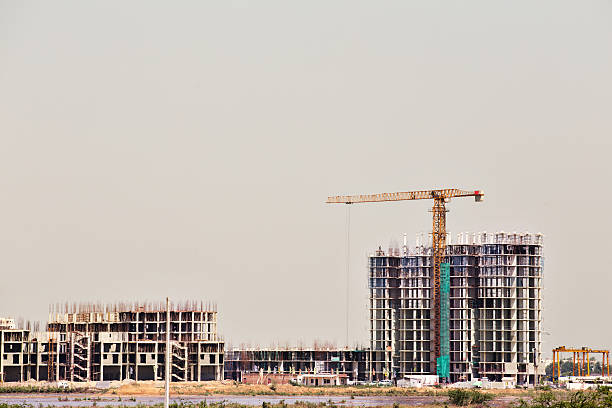Building in remote or rural areas offers unique opportunities—and unique challenges. Wide-open spaces and scenic surroundings make for beautiful projects, but the lack of nearby infrastructure can complicate logistics, especially when it comes to waste management. Unlike urban construction sites, rural projects often don’t have easy access to municipal waste services or recycling facilities, making debris disposal a key concern for builders and contractors.
That’s why having a solid waste management plan is essential for success. With the right approach—and the right partners—you can manage construction waste efficiently, stay compliant with environmental regulations, and keep your project on schedule, no matter how remote the location.
Contents
The Challenges of Rural Construction Waste Management
Rural and remote construction sites face several unique challenges when it comes to waste disposal:
- Limited local waste services: Many rural areas lack regular trash collection or recycling programs.
- Long transport distances: Hauling debris to the nearest landfill or recycling center can be time-consuming and costly.
- Environmental sensitivity: Rural areas often have fragile ecosystems that require careful handling of waste materials.
- Space constraints: While rural sites may seem spacious, terrain and accessibility can make it difficult to store or transport large amounts of debris.
These challenges make it crucial for contractors to plan ahead and implement efficient waste management strategies from the start.
Planning Ahead for Efficient Waste Management
1. Conduct a Waste Assessment
Before construction begins, identify the types and quantities of waste your project will generate. Common materials include concrete, wood, metal, asphalt, and packaging. Knowing what you’ll be dealing with helps determine the right disposal methods and equipment.
2. Choose the Right Disposal Partner
Partnering with a reliable waste management company is essential for remote projects. Providers that specialize in rural or construction waste can coordinate delivery, pickup, and disposal even in hard-to-reach areas. A construction dumpster rental can simplify the process by providing a single, centralized location for all debris.
3. Choose On-Site Sorting and Recycling
Sorting waste materials on-site can reduce the number of trips needed for disposal and lower costs. Separate recyclables like metal, wood, and concrete to ensure they can be repurposed or processed responsibly.
4. Schedule Regular Pickups
In remote areas, waiting too long between pickups can lead to overflowing dumpsters and cluttered job sites. Establish a pickup schedule that aligns with your project’s pace to keep waste under control.
The Role of Dumpsters in Remote Construction Projects
Dumpsters are one of the most effective waste management tools for rural construction sites. They provide a safe, organized, and efficient way to collect and store debris until it can be hauled away.
Here’s how dumpsters help streamline rural construction waste management:
- Centralized Waste Collection: A dumpster keeps all debris in one place, preventing clutter and maintaining a clean work environment.
- Reduced Transportation Needs: Instead of multiple small trips to disposal sites, one large haul removes all waste at once—saving time and fuel.
- Improved Safety: Containing waste minimizes hazards on-site, such as tripping over materials or dealing with sharp debris.
- Environmental Protection: Proper containment helps prevent debris from spreading into nearby soil or waterways.
For remote projects, choosing a provider experienced in delivering dumpsters to rural sites is key. Companies like Temporary Dumpster specialize in flexible, reliable dumpster rental services that cater to both urban and rural construction projects. Their team ensures timely delivery and pickup, even in areas where access might be limited.
Sustainability in Rural Construction
Sustainability should always be part of the plan, especially in rural environments where ecosystems are more vulnerable. Here are a few ways to make your waste management practices more eco-friendly:
- Recycle and Reuse: Recycle concrete, metal, and wood whenever possible. Reclaimed materials can often be reused on-site or sold to local facilities.
- Minimize Waste Generation: Order materials carefully to avoid excess, and use modular or prefabricated components to reduce scrap.
- Avoid Hazardous Disposal: Handle chemicals, paints, and other hazardous materials with care to prevent contamination.
By combining sustainable practices with efficient waste management, you can reduce your environmental impact while maintaining productivity.
Simplifying Remote Waste Management
Managing waste on remote or rural building projects doesn’t have to be complicated. With proper planning, the right equipment, and a dependable partner, you can keep your site clean, safe, and compliant while staying on schedule.
Temporary Dumpster provides dependable, flexible dumpster rentals designed to meet the unique needs of construction teams working in challenging environments. Their commitment to timely service and responsible waste handling makes them a trusted choice for contractors across the country.
No matter how far off the beaten path your project is, the right waste management strategy ensures that progress continues—efficiently, sustainably, and responsibly.




